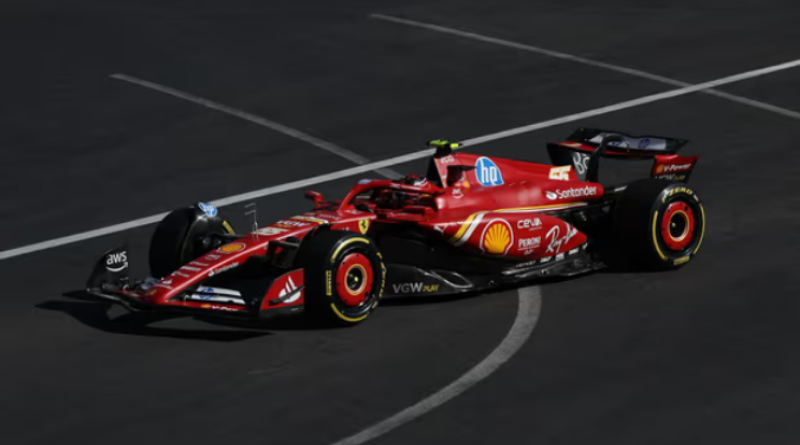Fossil fuel companies sponsor $5.6bn in global ‘sportswashing’ deals

Fossil fuel companies pumped at least $5.6bn (£4.2bn) of sponsorship money into motorsports, football, golf and even snow sports in an effort to “buy social licence to operate”, according to a new report.
Almost no major spectator sport remains untouched by oil and gas money, according to research carried out by the New Weather Institute (NWI), a climate thinktank, which traced more than 200 sponsorship deals between sports teams and the industry.
In addition, sports stars such as Cristiano Ronaldo, Lionel Messi, Tyson Fury and Anthony Joshua have all been successfully recruited to spend time in the Middle East as part of sponsorship deals, the report says.
It comes as concern grows about the fossil fuel industry’s increasing efforts to launder its global standing through “sportswashing” – a practice, long used by nation states, of building associations with sporting events to improve tarnished reputations.
In 2023, Mohammed bin Salman, the crown prince of Saudi Arabia, said: “If sportswashing is going to increase my GDP by 1%, then we’ll continue doing sportswashing.”
According to NWI’s Dirty Money report, Aramco, Saudi Arabia’s national oil company, was the biggest single investor in sports sponsorship identified by NWI’s report, handing out almost $1.3bn across 10 deals. The petrochemical company Ineos was second, with $777m in sponsorship deals; Shell had sponsored sports to the tune of $470m; and TotalEnergies, France’s leading oil company, had $340m in deals.
The report said: “Fossil fuel companies are seeking to associate their product, whose air pollution alone is estimated to kill over 5 million people a year, with sport’s immense social capital and positive health impacts.
“They do this for many of the same reasons that tobacco companies sponsored sport before it was largely banned – to portray themselves in a positive light and normalise their activities in the eyes of billions of sports fans.
“These types of sponsorship deals buy so-called ‘social licence’ to operate, in an attempt to divert attention from their role in fuelling the climate crisis and harming human health.”
Researchers at NWI identified sponsorship deals by trawling news articles and press announcements, supplemented with data from the sponsorship deals tracker provided by SportBusiness, a specialist financial publication.
Most did not disclose how much they were worth, so the researchers estimated the value of those deals through comparisons with similar sponsorship deals where the spending was known.
They found that football benefited from the most deals, with 59 sponsorship arrangements worth a total of almost $1bn. But motorsports attracted the most money, with $2.2bn of oil and gas money spread across 40 deals.
A TotalEnergies spokesperson said: “For several years, TotalEnergies has been a partner of major sporting events in its key regions and around the world. Our aim is to share with all our audiences and clients the passion for sport and the values it represents: safety, respect for each other, solidarity, the pioneering spirit that drives us to adapt and innovate daily, and the performance minded [sic] that inspires us in all our commitments.”
A Shell spokesperson said: “Shell invested $5.6bn in low-carbon solutions last year, which was 23% of its capital spending. This is to support the development of low-carbon energy solutions including e-mobility, low-carbon fuels, renewable power, hydrogen and carbon capture and storage.”
Aramco and Ineos were contacted for comment.






